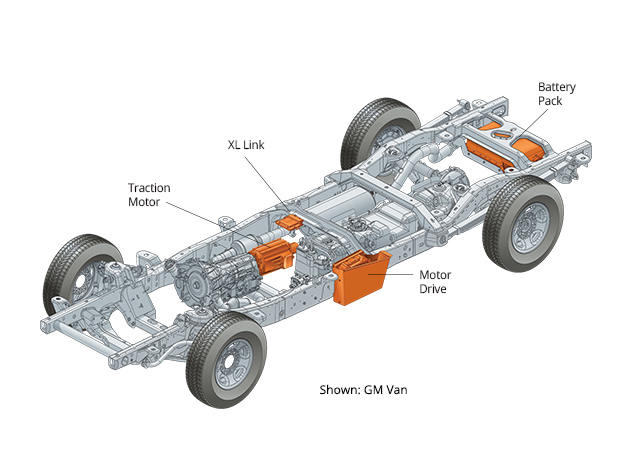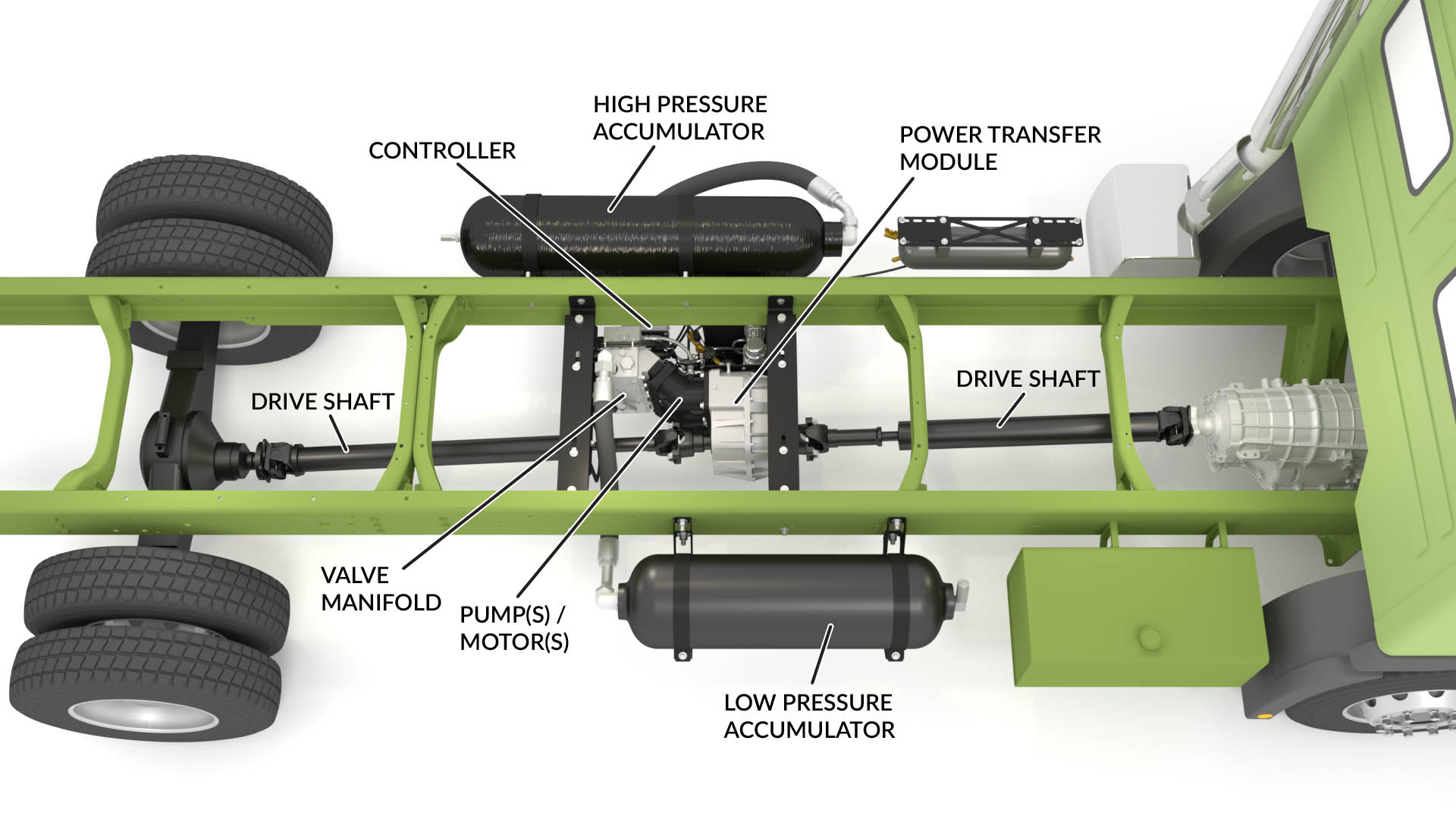We like to point to F1 for some substantial technological advances, but it’s largely the commercial side of the auto industry that serves as technology’s real-world test bed; being able to verify and put a value behind the durability, serviceability, and life-cycle costs. At this year’s annual World Truck Show, Ford, Chevrolet, and Ram all made announcements regarding different areas the customer experience such as, branding, virtual customization, and OEM approved aftermarket companies that convert fossil-fueled trucks into hybrid and full-on electric vehicles.
Chevrolet’s announcement that its new medium-duty truck, co-developed with Navistar, would be utilizing the Duramax diesel/ Allison transmission powertrain duo.The brief announcement highlights the importance of maintaining staying relevant in the news even in this market. It also reinforces the Duramax/ Allison brand which is unique in the fact that other OEMs stick to branding just the engine.
Ram Commercial is advancing its customer experience through its very literally named Ram Augmented Reality Upfit Configurator. Customers can virtually plan and view their interior layout. Ram also announced a new certification program for upfitters called Pro Q system where upfitters can have their overall production process certified by Ram, ensuring OEM quality standards.
The most significant announcement comes from Ford who announced hybrid/ electrification systems from approved upfitters that can be applied to virtually every Ford commercial vehicle available. As part of their eQVM program, there are four flavors of alternative powertrains; hydraulic-hybrid, electric-hybrid, plug-in electric hybrid, and full, battery powered electric.
 Giving us a look at what is possible with Ford’s forthcoming F-150 hybrid, XL Hybrid’s plug-in electric hybrid F-150 claims a 50% improvement in fuel efficiency with its >10kWh battery. The downside is that the entire system results in a 700 lbs weight penalty. Expect Ford’s engineers to focus on reducing the system’s overall effect on payload up until its reveal in 2020.
Giving us a look at what is possible with Ford’s forthcoming F-150 hybrid, XL Hybrid’s plug-in electric hybrid F-150 claims a 50% improvement in fuel efficiency with its >10kWh battery. The downside is that the entire system results in a 700 lbs weight penalty. Expect Ford’s engineers to focus on reducing the system’s overall effect on payload up until its reveal in 2020.
A less expensive approach to reduce fuel costs and the impact on the environmental is the electric-hybrid solution, available on the F-350 on up. The system recaptures energy during braking, sending it to the 1.8kWh Li-ion battery.The stored energy is then used to propel the vehicle during acceleration via a traction motor that lives along the custom drive-shaft. XL Hybrids claims this system provides a 25% fuel savings and only weighs 350 lbs.
A full EV option is provided through a second company, Motiv, and is available for the E-450 and F-59 (think shuttle bus and large school bus). Three different batteries sizes are available up to 127kWh and the entire system reduces operating costs by up to 85%. This system is fairly limited to trucks running short route schedules as a full charge requires 8 hours.
A hydraulic-hybrid system is a third option and claims to be the most efficient at recapturing braking energy because the system doesn’t have charge limits which can often be exceeded during braking. This system includes a high and low pressure tanks that acts as the energy storage. The simplicity, light weight, and familiarity of the design are big attractors for fleets. the hybrid system is currently available for the F-350 and larger.
All three hybrid-options require only limited modifications to the OEM drivetrain, with the main modifier being the replacement of the driveshafts to account for the space required of the traction motor. The hydraulic tanks, batteries, and processing units can, for the most part, be tucked in areas that don’t cause intrusion into the cabin or cargo areas. The original powertrain warranty is maintained for the Ford parts and each eQVM retailer offers their own warranty for their specific parts.
What can the retail market expect from these commercial market applications?
Chevrolet continues to bring additional credibility and awareness to the Duramax/ Allison powertrain setup and FCA’s virtual experience and certified upfitter programs help customers make choices with a new level of confidence. Ford’s eQVM program provides a seamless segway for the introduction of the F150 in 2019 as the concept to the concept that a hybrid powertrain can be both advantageous for the environment and the business bottom line.
